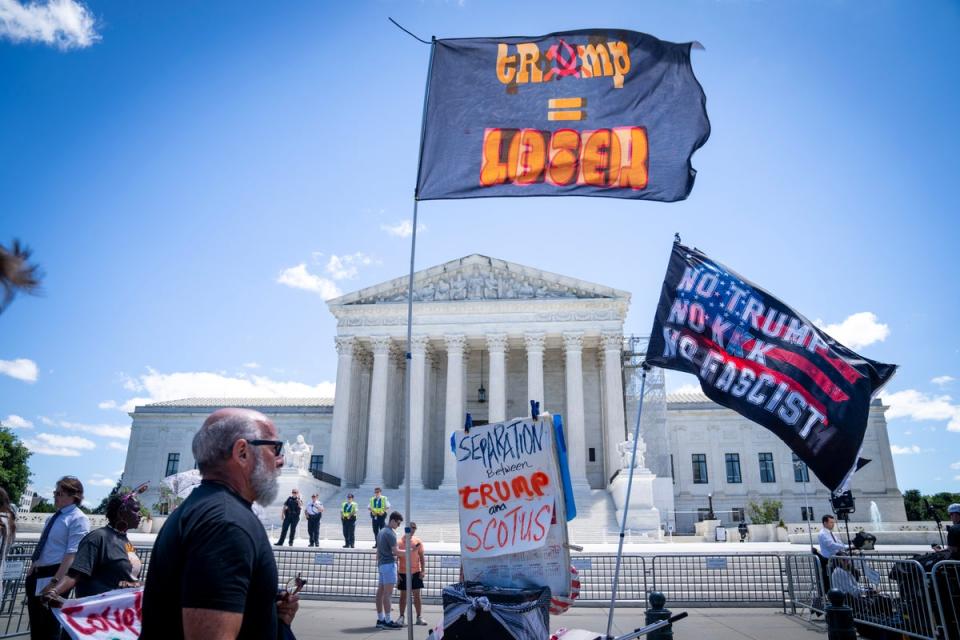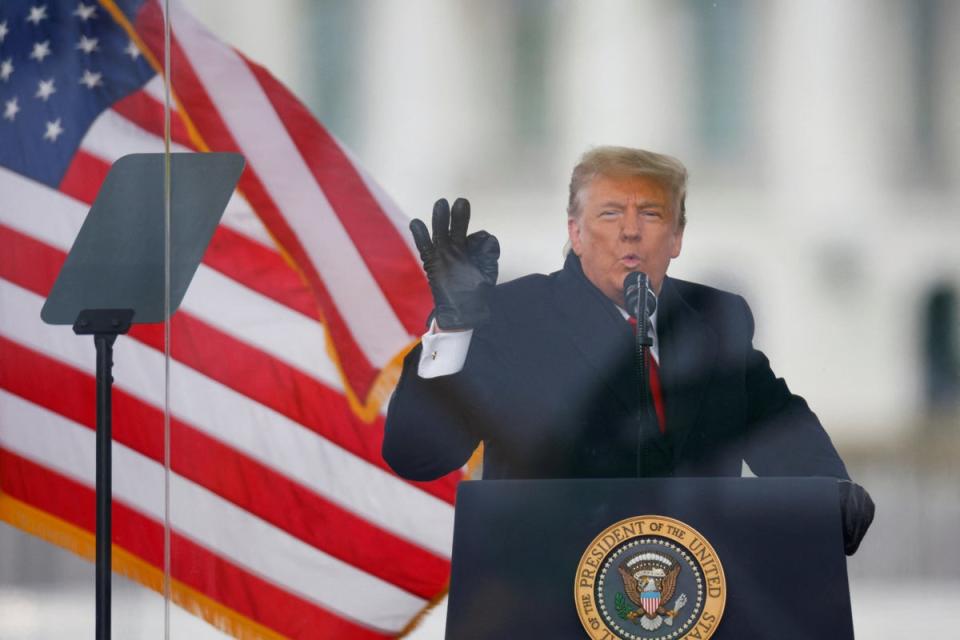‘A law-free zone around the president’: Supreme Court liberal justices denounce ‘nightmare’ immunity ruling
The Supreme Court’s three liberal justices have warned that their conservative colleagues have turned the president into “a king above the law” after they granted Donald Trump some immunity from criminal prosecution.
Monday’s decision radically and dangerously reshapes the presidency and “makes a mockery” of the Constitution and the idea that “no man is above the law,” according to a furious dissenting opinion from Justice Sonia Sotomayor.
“Never in the history of our Republic has a President had reason to believe that he would be immune from criminal prosecution if he used the trappings of his office to violate the criminal law,” she wrote. “Moving forward, however, all former Presidents will be cloaked in such immunity. If the occupant of that office misuses official power for personal gain, the criminal law that the rest of us must abide will not provide a backstop.”
The monumental decision could shield Trump from ever going to trial for his attempts to overturn the 2020 presidential election, and will have “stark” long-term consequences, according to Sotomayor.
“The court effectively creates a law-free zone around the president, upsetting the status quo that has existed since the founding,” Sotomayor wrote in her dissent, joined by Justices Elena Kagan and Ketanji Brown Jackson.

“Orders the Navy’s Seal Team 6 to assassinate a political rival? Immune,” she wrote, referencing a violent hypothetical that was introduced during an appeals court hearing in the case.
“Organizes a military exchange for a pardon? Immune. Immune, immune, immune.
“Even if these nightmare scenarios never play out, and I pray they never do, the damage has been done. The relationship between the president and the people he serves has shifted irrevocably.”
Sotomayor noted that the conservative majority’s “troubling” decision to single out actions in Trump’s case that should be considered “official” – immune from prosecution or even being used as evidence – but did not identify other actions that could still be prosecuted.

The court declined to rule out whether Trump is immune from prosecution for his role in organizing so-called fake electors; pressuring state officials to toss out results; and failing to stop a mob of his supporters that stormed the Capitol.
“Having now cast the shadow of doubt over when – if ever – a former President will be subject to criminal liability for any criminal conduct he engages in while on duty, the majority incentivizes all future Presidents to cross the line of criminality while in office,” Justice Jackson wrote in a separate dissent.
“Presidents alone are now free to commit crimes when they are on the job, while all other Americans must follow the law in all aspects of their lives, whether personal or professional.
“The official-versus-unofficial act distinction also seems both arbitrary and irrational, for it suggests that the unofficial criminal acts of a President are the only ones worthy of prosecution.”
The Supreme Court, not the law itself, will now decide what happens when “criminality emanates from the Oval Office in the future,” Jackson added.
“The potential for great harm to American institutions and Americans themselves is obvious.”


